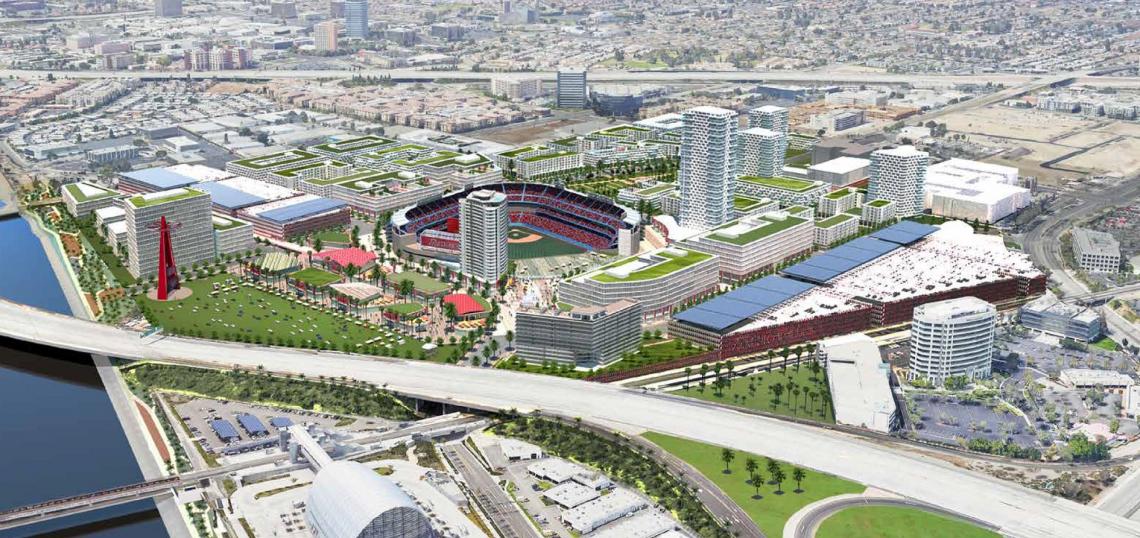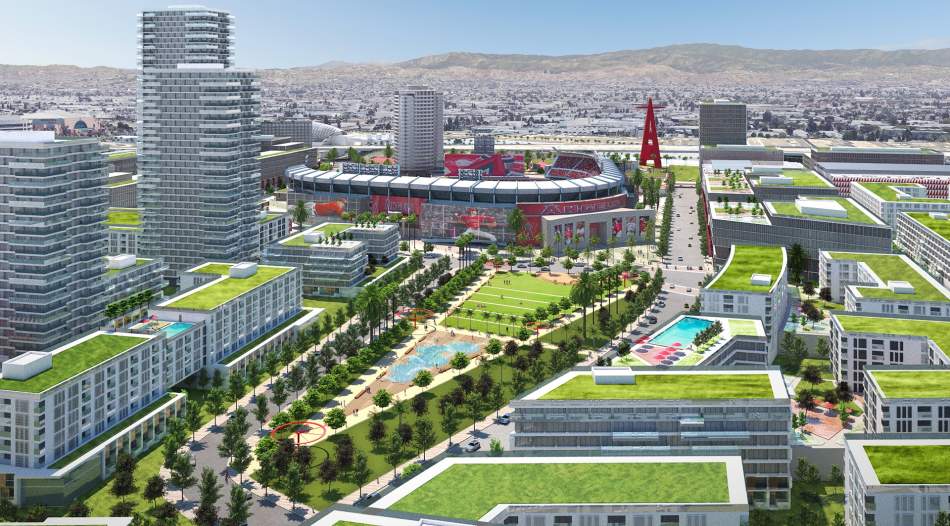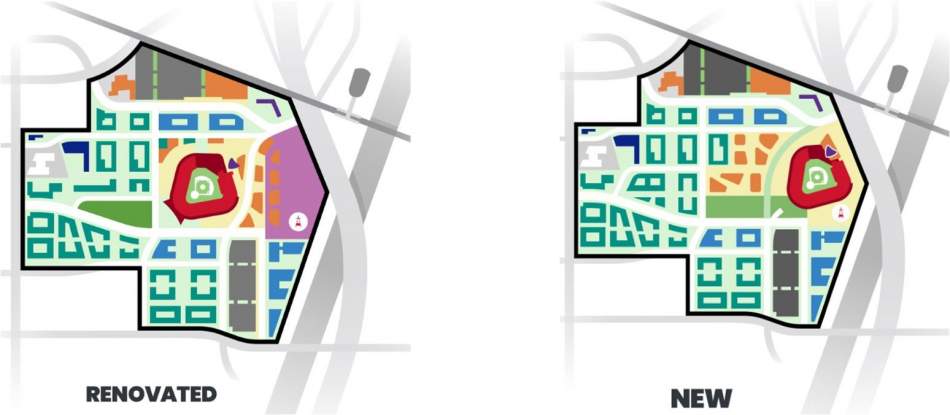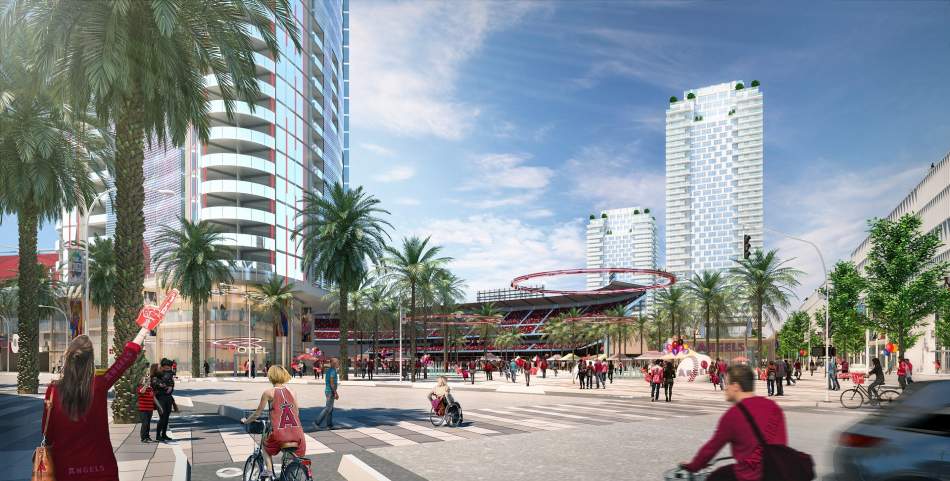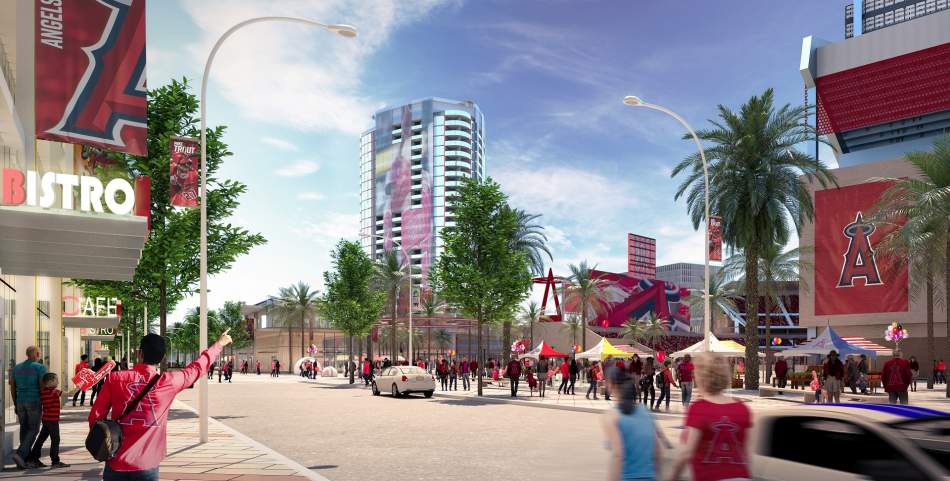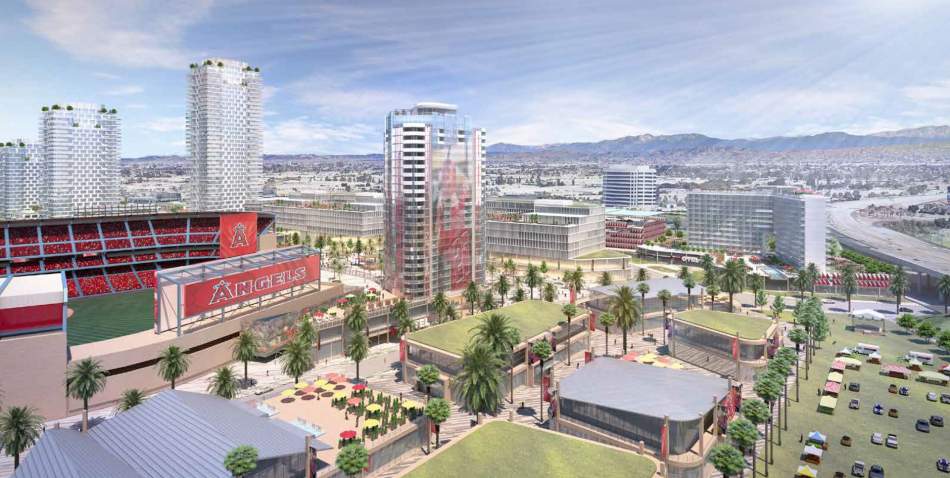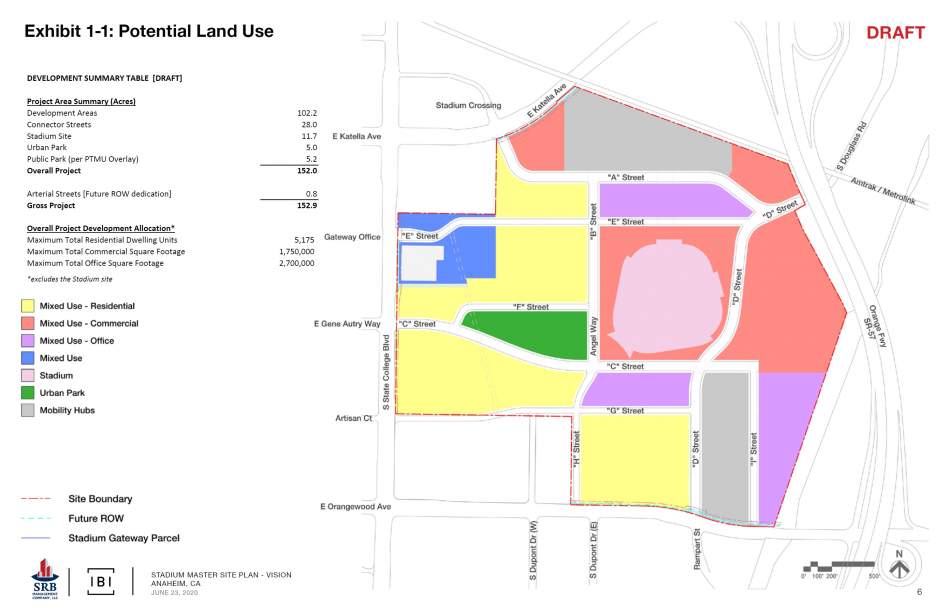Angel Stadium is poised to become the center of a sprawling commercial development including housing, offices, and retail, under a proposed 30-year master plan submitted to the City of Anaheim.
SRB Management Co., an entity controlled by Angels owner Art Moreno and his family, is listed as the applicant behind the proposed complex. Their conceptual master plan calls for the construction:
- 2.7 million square feet of office space;
- 5,175 condominiums and apartments - including affordable units;
- 1.1 million square feet of retail and restaurant space;
- 943 hotel rooms;
- a five-acre park; and
- parking for 12,500 vehicles.
Additionally, the plan would allow for the renovation of the existing 45,483-seat stadium (built in 1966), or the construction of a replacement facility of roughly the same size on land adjacent to the Orange Freeway and the Santa Ana River.
“For too long, the fate of baseball in Anaheim was unclear,” Anaheim Mayor Harry Sidhu said in a news release. “Now there is a clear path forward with this proposal for neighborhoods, parks, open spaces, shopping, dining and entertainment, all built around baseball."
The groundwork for the project was laid in December 2019, when the Anaheim City Council voted to move forward with a proposal which would include the sale of the Angel Stadium land to Moreno and his family for $325 million. In exchange, the Angels would be committed to playing in Anaheim through the year 2050 and taking control of their own playing venue. Prior to this arrangement, the team briefly flirted with the possibility of relocating to Long Beach, among other locations.
"Selling the Big A, as the stadium is known, would relieve the city of yearly payments toward improvements, currently at $700,000, $5 million through the potential close of a sale in 2025 and $17 million through 2038, the end date of the current lease," according to a statement posted to the City's website. "Anaheim would also save annual administrative costs to oversee a stadium lease and agreements with neighboring businesses."
While the City would also forego revenue from ticket sales and parking, those losses are expected to be offset by savings due to no longer owning and maintaining the stadium.
Inspirations for the Angel Stadium Plan include the San Diego's Petco Park and its surroundings, as well as Chicago's Wrigleyville neighborhood. Several local sporting venues, including Staples Center and SoFi Stadium, are also accompanied by complementary commercial developments featuring housing, commercial space, and hotels.
The Anaheim Ducks, which play at the neighboring Honda Center, are also slated to unveil plans for a similar commercial development on the land surrounding their venue.
IBI Group, the firm tasked with developing the master plan, envisions Angel Stadium at the center of a new street grid, with an outfield opening onto a wide pedestrian plaza. Conceptual renderings depict an array of high-rise and mid-rise buildings, with prominent gateway markers located at major streets.
The Angel Stadium site occupies a substantial portion of Anaheim's 820-acre Platinum Triangle district, which is zoned to facilitate high-density commercial and multifamily residential developments. The neighborhood is centered on the ARTIC transit hub, which is intended to one day serve the California High-Speed Rail network.
A project website indicates that the City of Anaheim may press for community benefits in the development plan, including additional affordable housing and park space beyond what is normally required. Additionally, the project could be required to employ union labor.
Environmental review for the development is expected to occur through August 2020, with a City Council vote expected in September or October. Construction is expected to begin in 2025.
- Anaheim (Urbanize LA)





